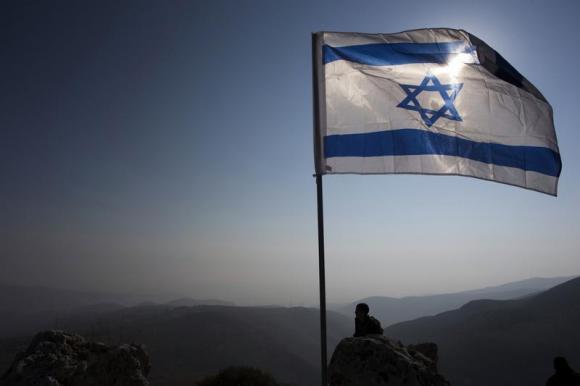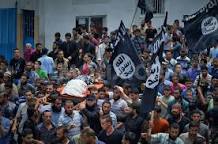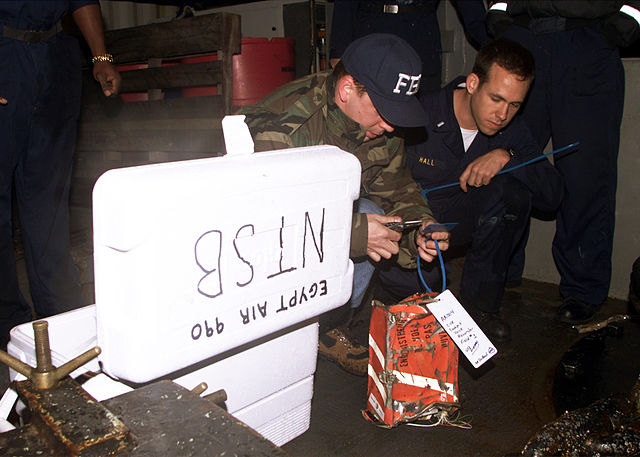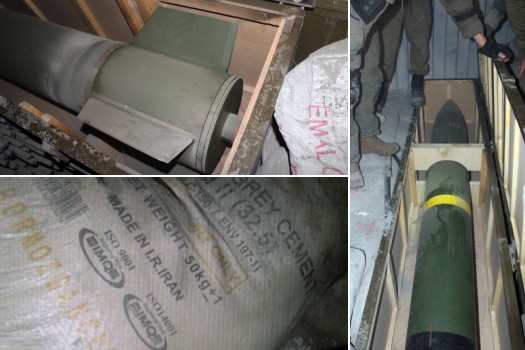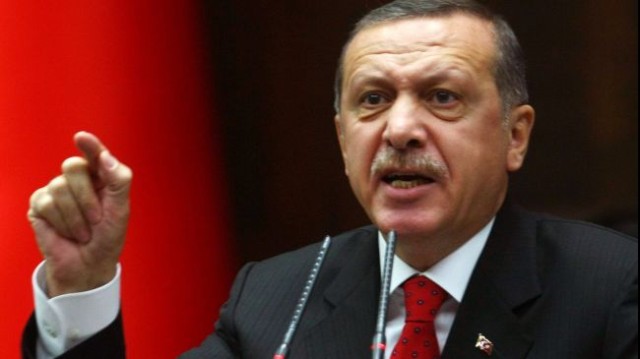What will Israel do with ISIS on its Doorstep?
Yesterday, the Islamic State of Iraq and al-Sham (ISIS) declared a Caliphate to be ruled under Sharia in the lands it has conquered in Syria and Iraq. Jerusalem-based Dan Diker on yesterday’s Lisa Benson Show, on the Salem Radio Network was in the midst of a discussion with Mudar Zahran about the ISIS threat with “Jordan in its gunsight”, listen here. He commented that the announcement should be viewed as a political statement to Al Qaeda and its leader Ayman al Zawihiri.
Zahran noted that Al Qaeda in Iraq (AQI) had morphed into ISIS. AQI founder Abu Musab al-Zarqawi was a Jordanian from Zarqa who became self indoctrinated, joined Al Qaeda in Afghanistan in 1990’s and ran his own Jihadi training center. He established brutal barbaric assaults in Iraq in 2005 engaging against US military and contractors, and Shia Iraqis that set a precedent for ISIS. al-Zarqawi was killed in a 2006 USAF -F16a bombing attack at a targeted safe house in Iraq.
The ISIS declaration was also a statement to other Sunni terrorist groups like the Muslim Brotherhood in Palestine, Hamas. The Algemeiner reported ISIS flags were flying this weekend on pickup trucks in Gaza for a funeral an indication that it was operating there. Conquering large swaths of terrain, looting upwards of a billion dollars worth of money and gold, capturing US supplied Humvees and Blackhawk helicopters abandoned by a corrupt and incompetent Iraqi Army have morphed ISIS into an Islamic State with its own army.
ISIS is more than just a political threat elsewhere in the sectarian turmoil of the Middle East. That was recognized in comments by New York Rep. Pete King onABC’s This Week that President Obama should be “very very aggressive” about ISIS. He was most immediately concerned about protecting our Embassy in Baghdad with 500 US security troops. There are also 300 US military advisors engaged in assessing what to do with a divided Shiite- dominated al Maliki government in Iraq. A government whose military is now supported by drones of Iran’s Quds Force gathering intelligence on ISIS forces near the capital of Baghdad.
King was also concerned about the estimated 100 American jihadis reported to be fighting with ISIS. ISIS has enticed them with English language weekly and annual reports and videos. My co-host on yesterday program, Lisa Benson, commented off –line about the plethora of such sophisticated ISIS social media that is published daily. That brought back memories of the campaign 2008 endeavoring to get Google to shut down Al Qaeda jihadist training sites.
The Administration for its part looks like the proverbial deer frozen in the headlights of ISIS. Last week, It floated the belated idea of funding $500 million to train “moderate” rebel fighters in the Syrian civil war. A civil war that looks increasingly like a stalemate between ISIS and the Assad forces are backed by Hezbollah and Iran’s Quds Force with support from Putin’s Russia. That Administration proposal may be more than a day late and a dollar short. We had reports in mid-June from Der Spiegel and other sources that the some CIA-trained rebel fighters in Jordan opted to join ISIS given its stunning successes.
As Diker pointed out on Sunday’s Lisa Benson Show the makeup of the anti-Assad rebels according to a Times of Israel report may control 95 percent on the Syrian side of the Golan Height. He, said, “we can see Hezbollah flags flying”. Then he noted that the balance might be Al Nusrah, the official Al Qaeda anti-Assad contingent that increasingly has seen their fighters opt to join the “successful” ISIS.
ISIS Flags in Ma’an, Jordan
I asked Zahran, who is pro-Israel and promotes the view that Jordan is Palestine, about the peculiar circumstances behind last Thursday’s Jordanian Security Court decision acquitting Al Qaeda preacher, Abu Qatada. Abu Qatada had been extradited from the UK for preaching incitement and allegedly raising funds for terrorist causes. The Jordanian court had dismissed one charge based on a failed 1999 plot to attack an American School in Amman. The second charge of plotting terrorism against Israel targets has yet to be heard. Last month on May 28, 2014, the Jordanian Security Court had sentenced 11 allegedly involved in an 2012 Al Qaeda plot to attack both British and US Embassies in Amman. Zahran drew attention to the nearly six decade dalliance with the Islamic Action front, the Muslim Brotherhood in Jordan, by the Hashemite Kingdom under the late King Hussein and now his son, King Abdullah II. Zahran noted that the IAF, Muslim Brotherhood which is largely Bedouin, is the strongest organized Islamist group in Jordan. He drew attention to the daily pitched battles in the southern town of Ma’an between Jordanian security forces and local tribal supporters of the IAF flying ISIS flags. Ma’an is located less than three kilometers from Israel’s frontier. The headline in a Washington Post report on the turmoil in Ma’an read, “Jordan fears homegrown ISIS more than invasion from Iraq”.
The security of Jordan as a buffer state, as Diker pointed out is foremost on the agenda of Israel ‘s national security. We note the comments in The Times of Israel by former Israeli security cabinet strategic advisor Gen. Yaakov Amidror, who said that Israel should bolster the defense of Jordan against the ISIS onslaught. At the Institute of National Security Studies (INSS) of Tel Aviv University, yesterday Israeli PM Netanyahu underlined these security issues. He talked about support for an Independent Kurdistan and completing a security fence along Israel’s eastern frontier from the Golan to Eilat. Netanyahu said:
The forces of fanatical Islam are already knocking on our door” and Israel needs to be proactive to bolster its defense against enemy infiltration.
“The first thing that we need to do is to build a security fence on our eastern border, and to build it gradually all the way from Eilat to merge with the security fence that we’ve been building over the last two years in the Golan Heights,” he said. “That fence does not hermetically prevent infiltration; it doesn’t prevent shooting through the fence as we saw tragically just a week ago; it doesn’t prevent barrages of missiles over it, or the digging of tunnels underneath it. But it does narrow down dramatically that permeatio on Israel’s border.”
Israel will not cede the Jordan Valley approaches, much sought after by Secretary of Kerry and the US facilitator in bi-lateral discussions between Israel and the Palestinian Authority, former US Ambassador to Israel, Martin Indyk. Diker pointed out Indyk’s announced return to the Washington-based Brookings Institution indicative of the US failure to achieve a final status agreement with the unified Palestinian government of Fatah with Hamas. Diker cited the abduction of three Israel youths, including one American, by Hamas the prime suspects sought in the massive Operation Brother’s Keeper as evidence that no security for Israel could have emerged from the US facilitated negotiations. Unfortunately, the bodies of the three youths were recovered by the IDF, today amidst grief for their families and sorrow expressed by many Israelis and Americans.

Deceased three Israeli abductees likely slain by Hamas suspects. From left: INaftali Fraenkel, Gilad Shaar and Eyal Yifrach, in three undated family photos. Credit Image by Reuters
Netanyahu’s INSS remarks reflect the deep concerns about the stability of Jordan rife with more than 1.4 million Syrian refuges, and a million Iraqis. There are an estimated 1.5 million Arabs Refugees of Palestinian origin. Jordan’s population of 7.9 million is based on CIA Factbook estimates. Note the last census was taken in 2004. Then there is the accommodation of Muslim Brotherhood and Salafist support growing in the country’s Bedouin population . They feel aggrieved about the lack economic participation and high unemployment amid alleged corruption charges against the ruling autocratic Hashemite King and family.
Umm al Fahm, Israel protests by Islamic Movement, June 27, 2014.
Netanyahu also recognized internal threats to Israel’s security at yesterday’s cabinet meeting. He announced that he would move to outlaw the Northern Branch of the Islamist movement, whose leader, Sheikh Read Salah, has proposed to establish a Caliphate on the Temple Mount. In October 2013, we wrote in the Iconoclast post about Israeli Arab adherents of Sheik Salah joining up with anti-Assad Al Qaeda rebel forces in Syria. Last Friday, there were rallies organized by Salah and his Islamist adherents in the Israeli Arab town of Umm al Fahm protesting the raids by the IDF in Operation Brother’ s Keeper denying Hamas abduction of the three slain youths. Rock throwing by protesters was broken up Israeli riot police with tear gas and sound bombs. Netanyahu noted:
[The northern Branch of the Islamist Movement] constantly preaches against the State of Israel and its people. [The Islamist Movement ] publicly identify with terrorist organizations such as Hamas. Therefore, I directed the relevant authorities to consider declaring the northern branch of the Islamic Movement as an illegal organization. This would give the security authorities significant tools in the struggle against the movement.”
In May 2014, Netanyahu had been thwarted in such a move against the northern branch of the Islamist Movement by the Justice Minister Tzipi Livni of Hatnua, because these enemies of the Jewish State are citizens. They are represented in Israel’s Knesset by Arab parties, espousing pro Palestinian positions verging on sedition.
Israel knows what it has to do with ISIS on its doorstep and fellow travelers inside. The question is the resolve of Jerusalem to take the hard steps. Israel’s friends in the US Congress are urging the Administration to undertake actions to protect its only reliable ally and interests in the region. The ISIS Caliphate’s declaration means that Israel will have to defend itself from jihadis both inside and on its doorstep.
EDITORS NOTE: This column originally appeared on The New English Review.

